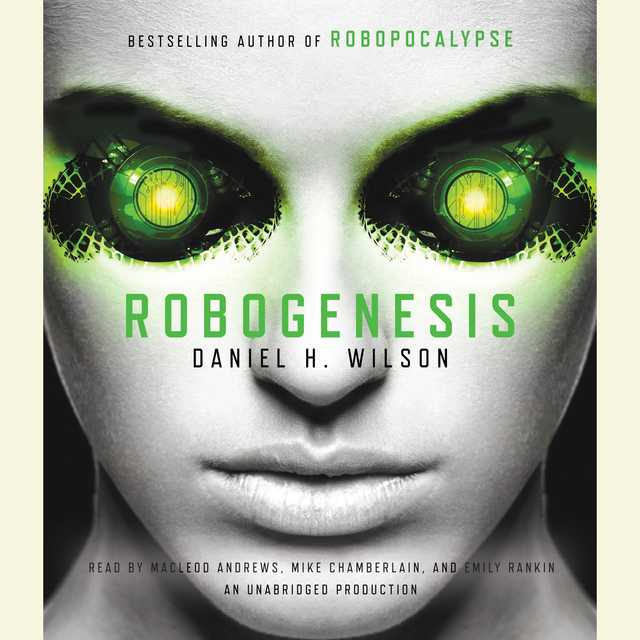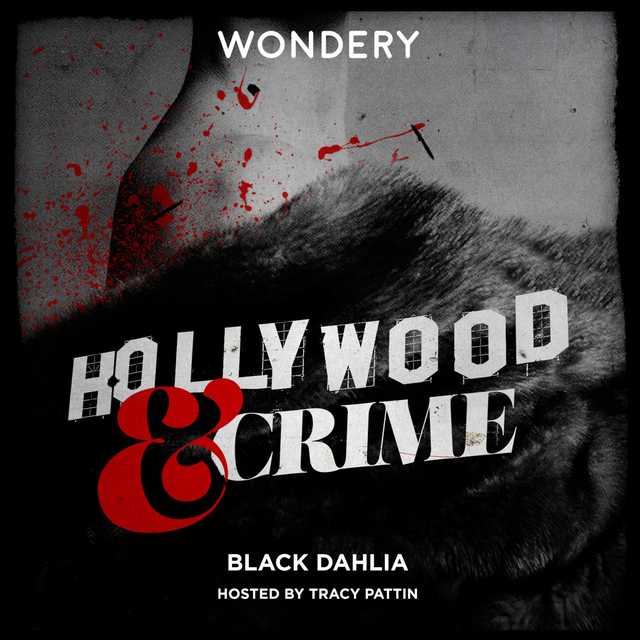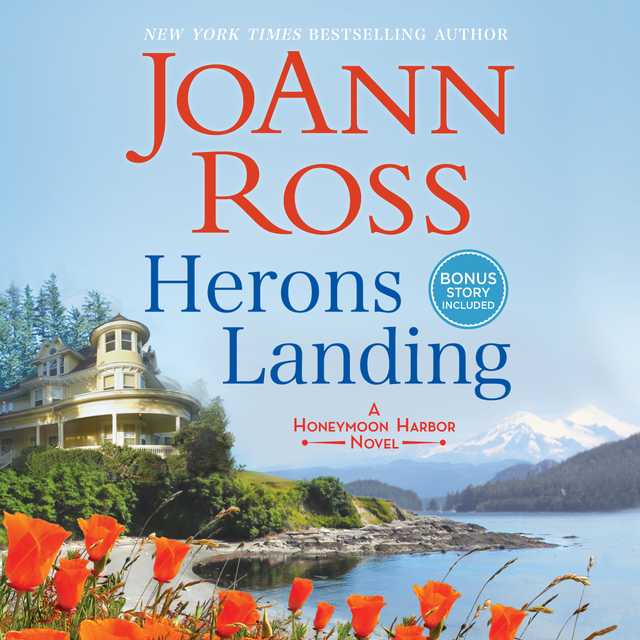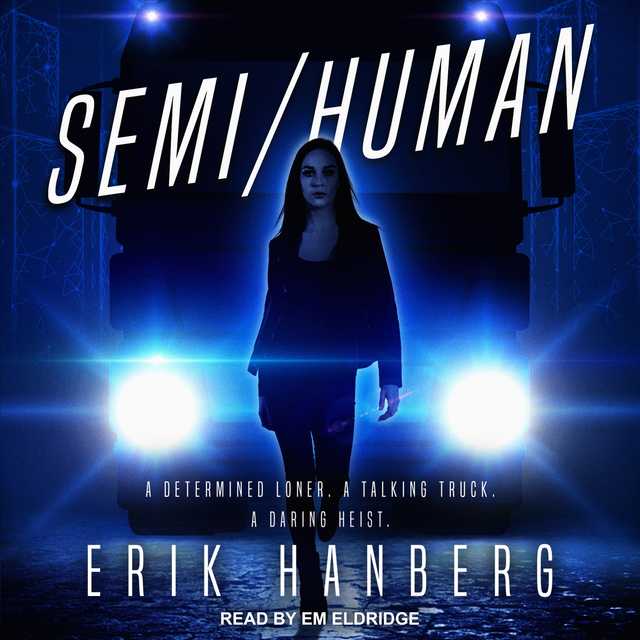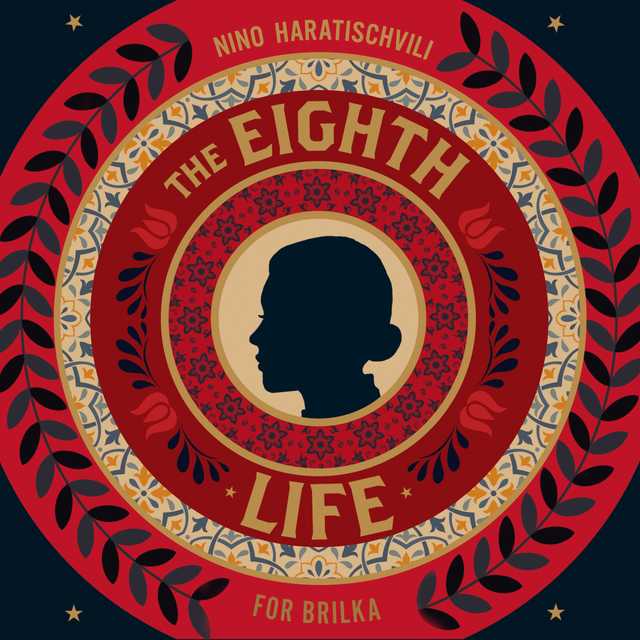Goldengrove Audiobook Summary
Goldengrove is an emotionally powerful novel about adolescent love and loss from Francine Prose, the New York Times bestselling author of Reading Like a Writer and A Changed Man. Focusing on a young girl facing the consequences of sudden loss after the death of her sister, this masterful coming-of-age work is radiant with the possibility of summer and charged by the restless sexual tension of teenage life.
Other Top Audiobooks
Goldengrove Audiobook Narrator
Mamie Gummer is the narrator of Goldengrove audiobook that was written by Francine Prose
Mamie Gummer made her New York stage debut in 2005 in Noah Haidle’s Mr. Marmalade. More recently, she starred in Theresa Rebeck’s The Water’s Edge, for which she has received a Lucille Lortel nomination for Outstanding Featured Actress. Her film work includes The Hoax, Evening, Stop Loss, and the HBO miniseries John Adams.
About the Author(s) of Goldengrove
Francine Prose is the author of Goldengrove
More From the Same
- Author : Francine Prose
- Caravaggio
- My New American Life
- Peggy Guggenheim
- What to Read and Why
- The Vixen
- Publisher : HarperAudio
- Abraham
- American Gods [TV Tie-In]
- Dead Ringer
- House of Sand and Fog
- Prey
Goldengrove Full Details
| Narrator | Mamie Gummer |
| Length | 8 hours 10 minutes |
| Author | Francine Prose |
| Category | |
| Publisher | HarperAudio |
| Release date | July 05, 2016 |
| ISBN | 9780062640871 |
Subjects
The publisher of the Goldengrove is HarperAudio. includes the following subjects: The BISAC Subject Code is Family Life, Fiction
Additional info
The publisher of the Goldengrove is HarperAudio. The imprint is HarperAudio. It is supplied by HarperAudio. The ISBN-13 is 9780062640871.
Global Availability
This book is only available in the United States.
Goodreads Reviews
Amelia
February 10, 2010
Sometimes I read books with really poetic language and it irritates me, because I feel like the author's trying too hard (example: Echo by Francesca Lia Block). Although Prose's language in this book was indeed poetic, it wasn't overly so, and that's what pulled me in.I liked this, although it was quite different from the satire I'm used to from Prose. Didn't know what I'd think of it; picked this up on sale at a bookstore that was going out of business. It had this creepy effect on me. It made me think about my relationship with my own sister. I don't think about her much usually; we're not especially close. This irritates our parents, who have an odd thing in common: they've both lost an older sibling.Some people have criticized this book for its lack of plot. But grief lacks plot. The days pass and things happen and those things catch you off-guard because you're forced to realize that the world doesn't stop with you. So high five, Francine Prose, for capturing that.
Jo
May 24, 2014
It is interesting the effect of books such as 'Gone girl', 'Lovely Bones' etc have had in that when a book features a death in the early pages, you begin to immediately look for the angle, the secret killer, the mysterious element that will gradually be revealed. In 'Goldengrove' Francine Prose has simply written a book about a death, its effects on a family and on those closest to the one who died. Towards the end of the novel a more sinister element does creep in but this is no whodunnit, there is no dramatic revelation. The gradual realization of this early on in the book made me wonder if the author could maintain such an apparently simple narrative without losing the reader, however this soon comes to be moot. Prose manages to keep us involved in the experience of this grief-stricken family, in each members reaction and coping mechanisms. The thirteen year old narrative voice of Nico comes across as authentic and empathetic as she deals with other's reactions and behavior and I was pleased that the family didn't automatically self-implode as so often in such novels. When cracks began to show there was some disappointment particularly in Nico's mother's actions yet the drama is contained and the emphasis is on the fact that this is a loving family who are broken by what has happened.It is Nico's experience, however that makes this such a good read both in her desire for messages from her sister, for a continued connection or explanation and her gradual metamorphosis into a Margaret clone which evolves her relationship with Aaron. How this plays out provides the suspense in the novel but it is not suspense that the pacing of the novel requires, it is simply caused by our interest in how this one death affects this one girl.
Susanburton
January 29, 2009
This is a novel of coming to terms with grief told by a thirteen year old named Nico. One afternoon her older sister and she were floating in their boat on the lake which they did often. Her sister dove in and due to a congenital heart failure drowned. Her parents were so grief stricken as was Aaron, her sister’s boyfriend that she had to navigate through her mourning alone.Her struggles, decisions, indecisions, hopes, and fears are all explicitly told in this touching and healing story. I would recommend this book for anyone, especially a teenager who has gone through a recent death. It explores all the phases of mourning in such a real and uncompromising way that her plight is your plight. Goldengrove is the book store her father owns. It plays an important role in the healing process for the whole family
Kristiana
March 29, 2010
I recommended this for book club, and I am fairly certain most people did not like it. I have always read sad books and I am quite fond of them. There were really great random quotes that made me stop and think. I'm glad the narrator established firmly at the end that she is an adult looking back at the event, it makes the language and beautiful writing seem more plausible, instead of the statements of a 13 year old. The audio narrator's voice is lovely and soothing and perfectly suited for the novel.I started reading this book and then switched to the audio the week before my grandmother died. When I returned to work a week later I listened mostly to music unable to focus on anything else, but eventually I continued listening to the story. I may not have liked it as much if this event did not take place, but reading this recovering from a very long week was perfect.It was a lovely book. Lovely language. Lovely content. Wonderfully suited for my mood.Wonderful quotes:"Little by little we surfaced from the dark gluey depths of that summer, bobbing into the blinding light we had to relearn how to breathe""Her death was an entity that would rip me apart if it could."
Dustin the wind Crazy little brown owl
January 12, 2023
Margaret, are you grievingOver Goldengrove unleaving?Leaves, like the things of man, youWith your fresh thoughts care for, can you?Ah! as the heart grows olderIt will come to such sights colderBy and by, nor spare a sighThough worlds of wanwood leafmeal lie;And yet you will weep and know why.Now no matter, child, the name:Sorrow's springs are the same.Nor mouth had, no nor mind, expressedWhat heart heard of, ghost guessed:It is the blight man was born for,It is Margaret you mourn for.- Gerard Manley HopkinsI wasn't expecting much from this book and was pleasantly surprised by how much I enjoyed the fine prose of Francine Prose. This small work of fiction contains several complimentary themes: death, trauma, relationships, finding oneself, history, art, literature, film, music, hauntings etc. Nothing seems overdone or forced. I bought this Goldengrove novel during the Borders Bookstore Liquidation Sale of 2011 and finally got around to reading it during the COVID -19 Pandemic. Read for the second time in January 2023.Favorite Passages:I leaned over and felt the water. It knew that summer wasn't here.______My mother and father expanded into larger versions of themselves.______I used to be scared of the house at night, not of killers or ghosts, but of my own power to imagine something watching me from the shadows. Those fears were gone completely. What could the shadows be hiding? Now I wished I could meet a ghost with a message from my sister. I loved the mysterious creaks and groans. I hurried toward them on the chance that the mouse in the wall might be Margaret's spirit. Margaret had always loved ghost stories, and now our lives had become one. But it was a ghost story in reverse, a ghost story in which the living were praying to be haunted._______It didn't matter how much noise I made. I knew that no one was sleeping. Insomnia was our language. _______Margaret's death had shaken us, like three dice in a cup, and spilled us out with new faces in unrecognizable combinations. We forgot how we used to live in our house, how we passed the time when we lived there. We could have been sea creatures stranded on the beach, puzzling over an empty shell that reminded us of the ocean.Occasionally, I'd find my parents in unexpected places: Dad in the middle of the stairs, Mom in the garage, as if she'd gone out with a purpose that got vaporized by the paint fumes. She took on massive housecleaning projects that she left half done. She ordered a paper shredder, and on Sundays, instead of music, I'd hear the hum of Mom making confetti from ancient tax returns she'd found in the attic.________I liked the idea of time on my own. What scared me was the thought of sitting through a boring movie. Boredom was dangerous now that every empty second was an invitation to gaze into the abyss and think how sweet it would feel to jump. Dangerous, because in those days, there was only boredom and grief, like two visitors, dressed in black, refusing to go home, no matter how we yawned and squirmed and kept looking at our watches._______I felt as if they were kidnappers who'd been holding me hostage, and now I could chew through the duct tape. But where would I escape to? Solitude and silence._______Sometimes, when the silence thickened, my father would ask me what I was reading.Living with Heart Disease. Surviving Loss. The Tibetan Book of the Dead. "Nothing much," I'd say.________I should have been rereading the Narnia stories I'd loved as a kid who longed to enter another dimension through a wardrobe or a snow globe. I should have stuck with the books on botany or marine biology, the ones that described how all of history and world culture had converged to produce the pepper in your shaker.________I had to be careful what I said, lest all my lies come true. My experiments in the poetry aisle had been an accidental success. Something lodged in my mind, so that for the rest of the day, that line "It is Margaret you mourn for," bashed around inside my brain like a bird trapped in a house. I knew it was insane to think that naming my sister after a morbid poem meant that she would die young. But the line stayed with me, and I wanted to get rid of it, the way you can pass along a tune that's driving you crazy by singing it so that it leaves your head and enters someone else's.________"I figure the human race has got about another fifteen minutes, max. That's why I like selling frozen dessert. Enjoy it before it melts - along with the polar ice caps. Ha ha."________"We could go there and walk around see if we can . . . I know this sounds crazy, Nico, but maybe we'd feel something. Some leftover . . . vibration."_______Suddenly jealous of the families of the rescued children, I turned to the painting I loved most and saved for last, Saint Nicholas of Tolentino Saving a Shipwreck. Shining through the furry black sky, a celestial searchlight had picked out a boat with notched walls and towers as if a fortified town had slipped offshore and floated onto the ocean. A storm had ripped the sails from the ship and swept them into the sky, where they whirled and snapped like laundry blown off a clothesline. From the edge of the painting, the saint flew down to save the drenched passengers and sailors huddled, praying, on deck.Staring at the picture, I found what I'd wanted when I'd gazed into Margaret's snow globe. I left my body and entered the painting. I felt the sting of salt on my face, I heard the wind moan and the sailors' shouts, I saw the saint approaching. I focused on the heavenly laser piercing the spiraling wind, and as I cowered along with the shivering crew, waiting for Saint Nicholas to steady the boat and gather me in his arms, I imagined - no, I heard - the tolling of the ship's bell.In fact, it was the doorbell. Someone had walked in._______"It can't hurt to check it out. Let's see how it feels to be there.""How what feels?""Who knows?" said Dad, "Some leftover remnant of all that hope and disappointment. Some aura that attached itself to the place and is still hovering in the air.""Aura?" I said. "Really, Dad, why not just get out the ouija board?"My father stared at me, confused. Perhaps my saying ouija board had reminded him of Margaret, or maybe my thinking about Margaret had made him think of Margaret. All the excitement leached out of his face and left him staring at the milky tracks on his coffee glass as if they were tea leaves he was trying to read.I said, "Actually, that sounds like fun. It's a fantastic idea."_______Before his death, Williams Miller wrote, "Were I to live my life over again, with the same evidence that I then had, to be honest with God and man, I should have to do as I have done. I confess my error and acknowledge my disappointment."_______"Are you sure this is right?""A lot happens in a hundred and fifty years," Dad said."I think the apocalypse blew through here, and we missed it," I said."Too bad," said Dad. "Certain longitudes and latitudes have a certain hard-luck karma."_______It was in our interests to let the others hide, lest, in the flood of confession, our own secrets might spill out. It was terrible, how Margaret's death had put everything in perspective and trumped everything that might seem huge to a normal person._______There would have been more room for us if not for the hundreds, maybe thousands, of knickknack owls that covered the doctor's desk and filled their own glass case.My father said, "I guess you like owls."The doctor's twitch of a smile was pure effort, but somewhere in mid-smile she finally saw my dad, and I watched my father's handsome face work its magic even on her. She said, "Thanks. I've been collecting them since I was a little girl."What sadistic relative first gave her one of those birds? To an owlish girl, it must have felt like being ripped by claws. I guessed she'd gotten over it and embraced her inner owl._______"I see," said Dr. Nevins. And then, all science, "How is that being managed?""Was being managed," said my mother."It wasn't," said my father. "She went swimming. She drowned.""She died," my mother said.Mom, I thought. That's what drowned means._______I thought, People see everything through the lens of their obsessions._______Still, the driveway had never seemed to steep, and the house loomed above me like the motel where Norman Bates keeps his dead mom in Psycho.I said, "I'll be out in a flash."I heard Elaine's car choking as I fought with the swollen back door. Was Margaret jamming the lock? I pushed as hard as I could and stumbled into the silent house. The quiet was peaceful. Neutral. It was if we had all died ages ago, and I was an archeologist come to catalog our artifacts. The house was no longer a danger zone but a site where a civilization had disappeared, leaving behind a ruin that was better off without the humans. A piano shawl, a mirror, framed photos of a happy family on the shore of a lake. A father, a mother, two daughters. The females doing yoga.The house was so silent I could hear the ticking of a clock. I'd never noticed before, the groans of the refrigerator. I moved swiftly, like a burglar. Then the energy drained out of me, and I longed to go to my room and lie down. But I couldn't afford to be suffocated by the thick melancholy seeping from the dusty, airless rooms. I needed to stay attentive to the health of Elaine's car and to the price I would pay if I let the house win.Margaret's room was sweltering. I walked over to the closet. The glitter comet winked at me. Margaret wanted me to find it.I said, "I know you're not angry. I know you understand." Nothing stirred. Not a breeze. I said, "I'll take that as a yes."I carefully folded Margaret's blue shirt and slipped it into my backpack. Then I tracked back through the house, searching for telltale signs of my presence. There were none. I hadn't been there. "That's it?" Elaine nodded at my backpack."A shirt," I said, "I told you."________. . . everything exploded at once, so fast that if you blinked, you missed whole galaxies, Milky Ways, flaming planets, and shooting stars. It was like having a ringside seat at Armageddon.A new volley of pops and booms signaled that the end was approaching. I tried to memorize every light, to hold on to it longer, but each flash erased the one before it, until the explosions stopped. We waited for more. There was no more. The last Roman candles had left a bright green smudge on the blackboard of the sky. We stared at it, without talking, until it disappeared. ________Astonishment fractured me. I split off from myself.________Light streamed in from the glassed-in porch where, from the doorway, I could see an easel and a table with brushes in coffee cans and tubes of paint lined up in rows like bright, exotic candy.________The silence was like a conversation.
Greta
December 04, 2013
Here is a book that makes me wish Goodreads had a three-and-a-half-stars option, because although I don't think this book deserves four stars, it definitely deserves more than three. "Goldengrove's" best quality is the writing. Francine Prose obviously understands what works in writing, and she manages to bring across a very powerful voice and unique style in this book. The imagery and descriptions are just gorgeous, quite frankly. It almost makes me feel like I'm in a half-real, half-mystical world even though the book is set completely in the real world. The story follows thirteen-year-old Nico, whose beautiful and talented older sister, Margaret, suddenly dies. The book follows Nico and her family's struggles with dealing with the death of Margaret, Nico entering into adolescence, and the questions that every person asks when faced with death.So why didn't I give this book five or even four stars? I just didn't feel like it went anywhere. It had a very loosely episodic plot structure. Something different happened in every chapter, and all the events were somewhat related but easily stood out on their own as well. I also feel like we didn't get to know Margaret well enough; I would have liked her death to come a little later than it did. The last chapter of the book might as well have been a cliff note at the bottom of the page - wrapping up everything in a neat little bow much too quickly. I actually think the ending to the second-to-last chapter would have made a great ending to the book. Even with its slight plot problems, "Goldengrove" is a deeply insightful and beautifully written novel. Be forewarned: it is very depressing and has very few funny moments. If you can stomach a very sad read, you should definitely check this one out.
Liz
January 10, 2009
I have to say this was one powerful book. Spanning the months after a beloved older sister's death, this novel focusses on the reactions of Nico and her parents to the unimaginable--life without Margaret. I found the characterization rich, the language and style sophisticated and I felt, quite palpably, the presentation and handling of grief. Having lost a parent less than a year ago, this book, and the characters' struggles to carry on, really moved me. For some reason, everything that happened in this book, and the characters' reactions, struck me as plausible.Yes the boyfriend thing was creepy, but it was explained in such a way that I can ssee it happening. There were so many good lines in this book-I actually slowed down to savour them. What I also admire about the story is that while it was about loss and grief, I didn't find it depressing. Maybe that's because so many of the thoughts and feelings expressed by the characters are ones I felt myself after the death of my dad...and so, ultimately there's reassurance here. The way people talk to you after a death, the way a family copes, the memories--reading about this fictional family's loss struck so many chords with me-so I wasn't mired in sadness but pulled forth, as they ultimately were, back into the present, looking to the future. The incident described on the last pages--when Nico is all grown up-- was absolutely stunning. I really loved this novel.
Susan
October 09, 2008
** spoiler alert ** My favorite line: "Margaret's death had shaken us, like three dice in a cup, and spilled us out with new faces in unrecognizable combinations" (51). I love that. It's gorgeous.The poetic language, though, is one of the issues I had with the book. It flows so well throughout but Nico says right out on the first page that Margaret was the poet (singer), Aaron was the painter, and she was the scientist, the one who took things one at a time. To me, the way the book is written, it seems like the POV of a writer or artist. But I'm not sure if that is a commment on Nico's personality and voice, because it does have the honesty of a very perceptive and sensitive pre-teen/teen, which I think Nico is.The other thing was Aaron. I'm not quite sure I believed their relationship. On one hand it was the most natural thing in the world, and reading the description of it was what drew me to the book in the first place. I was ready to believe it and buy into it, but the way it was presented seemed off somehow. I also wasn't sure I liked the epilogue-ish ending. I seem to be reading a lot of those lately. I wish writers wouldn't do it so much.Nevertheless, this is a beautiful story about the loss of a family member. It actually reminded me a little Alison Smith's memoir Name All the Animals, which is typically a good thing. Grade: A-
Jeanne
October 09, 2008
Margaret, are you grievingOver Goldengrove unleaving?For those of you familiar with the poetry of Gerard Manley Hopkins, you know that this novel is not going to be a happy one. But please don’t let that stop you from reading Prose’s latest; it is certainly worth your time.Thirteen-year-old Nico is devastated when her older sister, Margaret, drowns in the lake by their home. Margaret was her best friend; Margaret was her world.Like many others in the same situation, Nico struggles with her grief. Her problems are compounded by her parents, who seem so absorbed by their own pain that they cannot help Nico with her grief. Who does Nico turn to in her time of need? Aaron, Margaret’s boyfriend. And then the trouble really begins. . . This is a quiet and brief story of one young woman’s struggle to deal with loss. Her pain is real, and the situations are real. Additionally, the writing is beautiful.Highly recommended.
Kathy
February 04, 2009
The story of thirteen year old Nico, who loses her older sister Margaret to drowning dragged me in and wouldn't let me go. How Margaret's death affects their parents and Margaret's boyfriend Aaron is the backdrop for Nico's story of personal exploration, growing maturity and the eventual conquering of the will to live over the pull of wanting to follow your loved one into the dark.I was moved by Prose's, well, prose, and couldn't put this story down. Each character was vital and well-drawn, and Nico was not only a girl that I would have liked to have known, but a rare literary soul that truly earned her tale. If you've ever lost a loved one, or even contemplated that eventual horror, this story will mesmerize you. I really liked Nico, and I really liked this story.
Erica
December 01, 2008
I really liked this book until the end. It's the story of a girl named Nico whose sister drowns (this happens at the very beginning), and the grief that consumes her and her parents afterward. She begins spending time with her sister's boyfriend with unfortunate results.Beautiful writing, wonderful portrait of grief, and then the end . . . without giving anything away, I'll just say that the author absolves everyone of their sins of grief except the boyfriend, and it feels gross and unfair, and there was a pat and happy (or at least as pat and happy as there can be in a book about a teenager's death) ending that didn't feel right.
Christie
December 31, 2020
Nico is just thirteen when her seventeen-year-old sister Margaret drowns. Nico tells us “We lived on the shore of Mirror Lake, and for many years our lives were as calm and transparent as its waters.” Margaret is the poet in the family, the beautiful daughter about to graduate from high school and head off to study music. She was named for Gerard Manley Hopkins’ poem “Spring and Fall: To a Young Child.”Nico is “Debbie Downer.” She doesn’t resent her older sister; she admires her. Her beauty, her talent, her relationship with Aaron.Francine Prose’s novel Goldengrove follows the summer immediately following Margaret’s death and it is a masterful meditation on grief. Margaret’s death is “like a domino falling and setting off a collapse that snakes out toward the horizon and spills over into the future.”Nico and her parents struggle to make sense of Margaret’s drowning, and they retreat into their own lives. For Nico’s mother Daisy, it’s a cocktail of pain-killers; for her father, it’s working on his book about how different cultures viewed end-of-days. For Nico, it’s Aaron, the beautiful boyfriend Margaret left behind. Over the course of the long, hot summer she and Aaron drift perilously close to each other in an effort to mend their broken hearts.I didn’t care that he was a boy. An older guy. A relative stranger. At that moment, he was the person who knew me best in the world.And she and Aaron do feel the same about the loss of Margaret. Aaron tells Nico…the strangest part is that she was alive and now she isn’t. That’s the thing I can’t get past. I can’t get my head around it. The absence. How someone can be here one minute, and the next minute they’re gone. You tell them everything in your life and then they…can’t be reached. Unlisted number forever.I loved Goldengrove. If Nico sounds perhaps too worldly for a kid, it’s because she is telling this story from a place far in the future. From this vantage point, she understands that “time layered over everything, cementing in the gaps, repairing or covering over what was cracked and broken, pressing it down into the earth and building on top, and on top of that.”Goldengrove is a coming-of-age story, and a story about grief that it is beautifully written and crackles with energy.Highly recommended.
Meg - A Bookish Affair
January 31, 2009
This book follows the story of a family who breaks after the death of one of their two daughters. The story follows the point of view of Nico, the daughter left behind. Nico always looked up to Margaret, her older sister and now that she's gone, she finds it hard to cope with anything. The way that this book is written is gorgeous.
Dori
March 04, 2010
A beautifully crafted, haunting and lyrical coming-of-age story about a girl who becomes involved with her dead sister's old boyfriend. Prose tackles the tricky subject of emergent sexuality/identity amidst unbearable grief and does so with beauty and unbelievable economy. Loved this!
Amy
January 19, 2009
Bit of a slow read, found myself waiting for something to happen.
Diane
April 19, 2009
Another book about a family tragedy -- this is much like Jodi Picoult and Wally Lamb and how a single tragic incident changes lives forever. I need to find some other topics.
Frequently asked questions
Listening to audiobooks not only easy, it is also very convenient. You can listen to audiobooks on almost every device. From your laptop to your smart phone or even a smart speaker like Apple HomePod or even Alexa. Here’s how you can get started listening to audiobooks.
- 1. Download your favorite audiobook app such as Speechify.
- 2. Sign up for an account.
- 3. Browse the library for the best audiobooks and select the first one for free
- 4. Download the audiobook file to your device
- 5. Open the Speechify audiobook app and select the audiobook you want to listen to.
- 6. Adjust the playback speed and other settings to your preference.
- 7. Press play and enjoy!
While you can listen to the bestsellers on almost any device, and preferences may vary, generally smart phones are offer the most convenience factor. You could be working out, grocery shopping, or even watching your dog in the dog park on a Saturday morning.
However, most audiobook apps work across multiple devices so you can pick up that riveting new Stephen King book you started at the dog park, back on your laptop when you get back home.
Speechify is one of the best apps for audiobooks. The pricing structure is the most competitive in the market and the app is easy to use. It features the best sellers and award winning authors. Listen to your favorite books or discover new ones and listen to real voice actors read to you. Getting started is easy, the first book is free.
Research showcasing the brain health benefits of reading on a regular basis is wide-ranging and undeniable. However, research comparing the benefits of reading vs listening is much more sparse. According to professor of psychology and author Dr. Kristen Willeumier, though, there is good reason to believe that the reading experience provided by audiobooks offers many of the same brain benefits as reading a physical book.
Audiobooks are recordings of books that are read aloud by a professional voice actor. The recordings are typically available for purchase and download in digital formats such as MP3, WMA, or AAC. They can also be streamed from online services like Speechify, Audible, AppleBooks, or Spotify.
You simply download the app onto your smart phone, create your account, and in Speechify, you can choose your first book, from our vast library of best-sellers and classics, to read for free.
Audiobooks, like real books can add up over time. Here’s where you can listen to audiobooks for free. Speechify let’s you read your first best seller for free. Apart from that, we have a vast selection of free audiobooks that you can enjoy. Get the same rich experience no matter if the book was free or not.
It depends. Yes, there are free audiobooks and paid audiobooks. Speechify offers a blend of both!
It varies. The easiest way depends on a few things. The app and service you use, which device, and platform. Speechify is the easiest way to listen to audiobooks. Downloading the app is quick. It is not a large app and does not eat up space on your iPhone or Android device.
Listening to audiobooks on your smart phone, with Speechify, is the easiest way to listen to audiobooks.











